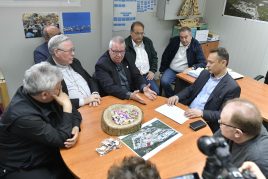
“I visited Lesbos a year ago and the situation today is much more dramatic. This has to stop. The Church must raise her voice, she must be a prophetic voice. The Church must be Europe’s conscience.” Cardinal Jean-Claude Hollerich, Archbishop of Luxembourg, President of the Commission of the Episcopates of the European Union (COMECE) has at heart the migrant camps in Lesbos and the thousands of men, women and children who live there. On the occasion of the Meeting on the Mediterranean promoted by the Italian Bishops’ Conference in Bari, the Archbishop, who past November welcomed eight Kuwaiti and Syrian refugees from the camps in Lesbos to his Archdiocese of Luxembourg, expressed “deep gratitude to Italian Bishops for having organized this meeting.” “I think it’s prophetic,” he says. “I expect a strong message to all the citizens of Europe, to politicians from the whole political spectrum. A message not only to people living in the countries bordering the Mediterranean, but also to those who, like myself, live in a Northern European country.”
 Southern Mediterranean countries feel abandoned by the rest of Europe. How can we respond to their cry for help?
Southern Mediterranean countries feel abandoned by the rest of Europe. How can we respond to their cry for help?
I think it is true. Europe has not been overly concerned. It left the countries to deal with their problems alone. This goes against all that the European Union is meant to be. The EU constantly claims to be a community of solidarity.
How can we talk about European values when no aid is available to the refugees dying in the Mediterranean and to countries in the front line such as Italy, Greece, Malta, Spain?
There is some help, but much more can be done. As a Church we too must open our homes, our parishes, our dioceses to welcome the people who are arriving throughout Europe.
Security regulations are being rediscussed in Italy in an attempt to find the best possible balance between security and hospitality. Which is the ideal approach?
Security is important for everyone. If security is not guaranteed, people will turn against all refugees. On the other hand, we must be careful not to exaggerate. Sometimes, I get the impression that the term “security” is mostly used by those unwilling to help. We don’t help refugees because they are holy, but because they need our help. It is our duty as Christians. If we don’t help, we lose our humanity. That’s what the Pope says. Then we also must work for greater justice. Justice in Europe, between countries in the South and the North. Justice in the countries of the Mediterranean and justice in Africa. Justice in all those places where people are suffering and see no future in their homelands.
We must make sure there is a future everywhere for everyone.
Europe is evidencing the major differences between the countries of the South and the North, between East and West. The peoples of Europe have lost their sense of belonging to the “European home”. How can this sentiment be restored?
I am going to Bari – and this is my small prophetic act – to listen. Listening to each other is very important. I am not going as someone with ready-made solutions. I am going to listen to what my confreres of the Mediterranean region have to say. This also entails empathy: it means allowing oneself to be transformed by what is being said; changing one’ s opinions, ideas. But this requires openness to change. If we close ourselves off to change, there will be no future for Europe. We must listen to each other.
Does this also apply to political leaders?
It does. Sometimes I have the feeling that politicians in Western countries have already condemned what others in the East could or would say. This is not fair. We must remember that they have a different historical background, marked by many years of communism. We need dialogue. We need in-depth dialogue. Perhaps it is also necessary to find new avenues for dialogue in Europe.
 The Pope called for the meeting in Bari not to voice complaints or for idle talk. He expects concrete proposals.
The Pope called for the meeting in Bari not to voice complaints or for idle talk. He expects concrete proposals.
We must be a prophetic Church, with proposals. I think that sometimes State aid to refugees was not the right thing for the West to do. It would be wiser if civil society could help instead. Integration would be greatly facilitated. For example, people arriving through the humanitarian corridors of Sant’Egidio were integrated into society. But this won’t happen if refugees are placed in huge refugee camps. Those are places where people lose hope and when people lose hope, hearts harden. I agree with the Pope: a lot has been said. Now it’s time to make proposals. I will say something I have never said before: Card. Michael Czerny, Card. Konrad Krajewski and myself have sent a letter to all Episcopal Conferences in Europe to address refugee issues. The letter will be published also on the website of the COMECE. We have done enough with words: we must take action. I am not anticipating anything because the letter must be read carefully.
 Why should Europe welcome migrants?
Why should Europe welcome migrants?
Europe is always talking about its Christian roots. Well, then let’s show those roots! If those roots don’t bear fruit, it means they are dead. Europe was the first continent to embrace Christianity. Owing to its Christian heritage, this continent must take action. There are also the celebrated values of the European Union. I cannot believe in those values if the EU allows people to die in the Mediterranean Sea. I simply can’t.












